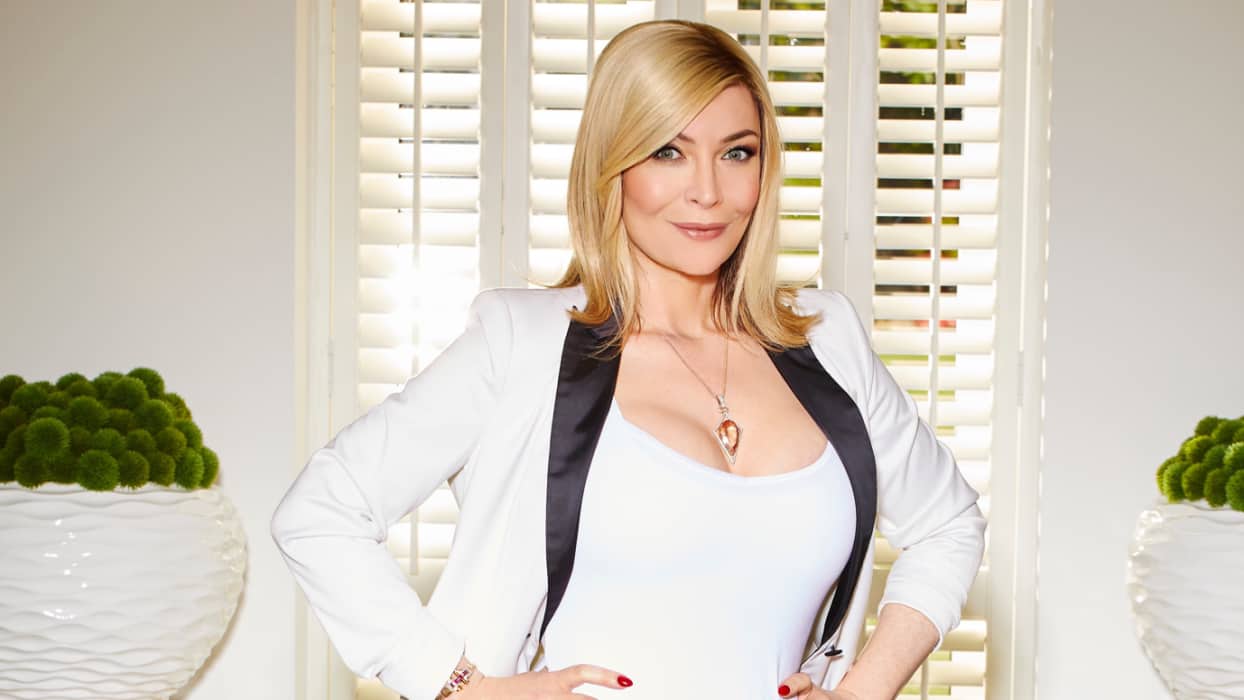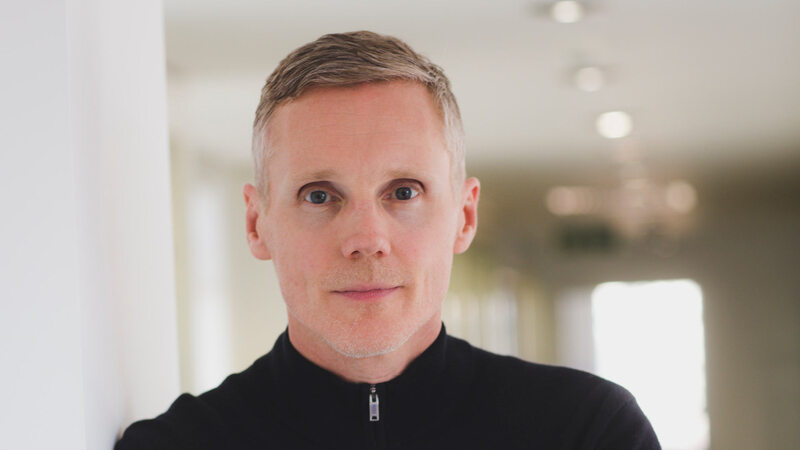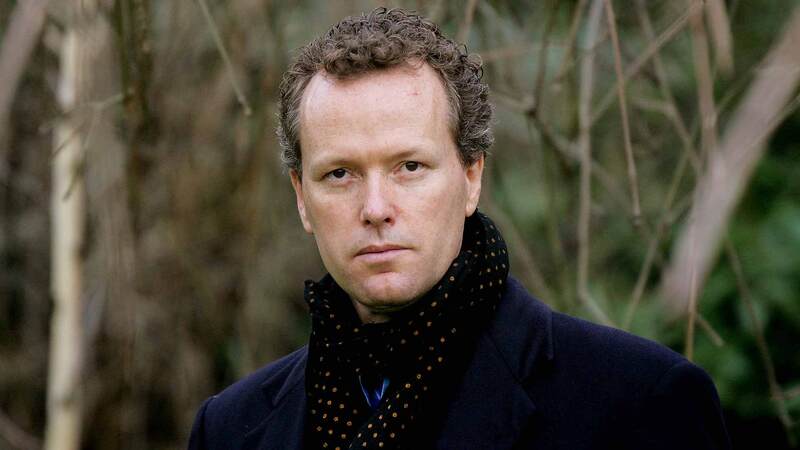You are viewing your 1 free article this month. Login to read more articles.
Melanie Blake | 'As a working-class person, you must still be seen as you were then, not as you are now'
From time spent homeless as a teen to being a sage to showbiz names, Melanie Blake has spun her colourful career tales into a pair of hit novels—which have had an equally unconventional route to market
I meet up with talent agent turned bonkbuster author Melanie Blake in the bar at the Langham, the five-star Mayfair hotel just across the road from the BBC. All very appropriate, given the swish surroundings chime with her glamorous, fun and gossipy first two bestsellers: 2019’s The Thunder Girls, which revolves around the reunion of a once hugely famous girl group, and Ruthless Women (out in paperback next month) which details the backstage bust-ups and shagnanigans at Britain’s biggest soap opera. Although, I confess, the glitziness of the bar does make me disconcerted, as we are meeting on one of the first days people are allowed indoors at restaurants and I am sporting a DIY home haircut—and, for one of the few times in the past 18 months, trousers that don’t have an elasticated waist.
After Blake dispenses some sage advice—“always drink Prosecco, never champagne or wine; you’ll never have a hangover”—along with a liberal pouring of said Prosecco, we chat about her experiences in the publishing world, which has many twists and turns. But the overarching theme keeps coming back to class.
I put myself back on the market, but that was a double-edged sword because it might make me seem difficult: who leaves a big global publisher? But actually, I was trying to do the best for the book and myself
To back up: Blake has a Hollywood rags-to-riches story. She grew up working-class in Stockport and her family became impoverished when her dad joined a fundamentalist Christian doomsday cult. Bullied at school, written off as a no-hoper by teachers, her solace was reading escapist books from the library by the likes of Jackie Collins and Jacqueline Susann. She left school at 16 and was homeless for a time as a teen but ended up in London working behind the scenes at “Top of the Pops”. The access she got on the show to pop stars, and the no-holds-barred, unfiltered advice she often gave out—“Kylie, I wouldn’t use that lighting, it makes you look terrible”—eventually led her to agenting and managing TV stars and singers, such as the Nolan Sisters, Claire Richards from Steps, Stephanie Beacham, Daniella Westbrook and Patsy Kensit.
Her books, then, are from the “write what you know” school as the main characters—singers, soap stars and TV execs—are from a world she is very familiar with. And not just from showbiz: in Ruthless Women, one of the characters is an tabloid hack-turned-celeb memoir specialist that Blake admits is based on the publisher John Blake (no relation), to whom she sold a few of her clients’ books.
Blake insists that even the more over-the-top moments of outrageous behaviour in Ruthless Women are pretty close to the truth. “The chauffeur scene, for example,” she says, about a passage in the book where one of the soap stars in a limo outside an awards show has some rather athletic congress with her very accommodating driver. “I was there. I was outside, waiting, holding that woman’s bag.”
But for all the dirt-dishing, there is a strong feminist undercurrent. Most of the main characters are women of a certain age, the oldest in her early seventies, all fighting their way in a rough industry in which “women are marked with a ‘best by’ tag”. Blake says: “When it first came out, I was expecting the biggest backlash, as I was still working as a talent agent, though I have pretty much stopped now. But all these actresses lined up to endorse the book because they wanted people to know this is what it’s like. A new producer will come in and say: ‘I know you’re popular. I know you’ve won every award there is, I know that the whole country likes you. But I hate you. And I’m going to get rid of you and ruin your character and career.’ These conversations happen.”
Moving house
The Thunder Girls was published by Pan Macmillan, the first title in a two-book deal. But Blake bought the rights to the second title back after being frustrated by plans for book two. She says: “They wouldn’t publish it in hardback, they said I would never sell hardback. I thought they were wrong. They said I was a ‘cult’ author. Now, I’ve sold over 100,000 units of these two books worldwide in all formats, and Ruthless Women isn’t in paperback yet. Is that ‘cult’?
“But it was a scary decision. I really thought that I had one more shot to get to the hardback bestseller list—or I was done—and I had numbers which suggested it would work. So I put myself back on the market, but that was a double-edged sword because it might make me seem difficult: who leaves a big global publisher? But actually, I was trying to do the best for the book and myself.”
Turns out Blake was right on the hardback, as the Head of Zeus-published book débuted at number four on the Original Fiction chart. This gets Blake reflecting on the make-up of the other authors on that bestseller list, that she was the only “mongrel” on the list, “the only one really working-class, with little formal education, the only one not really mega-connected. I mean, Jane Fallon went in at number seven. And still no [media outlets] will review my books.”
No reviews, but you may have seen Blake doing the rounds as she has done tons of publicity: the compelling backstory is good copy, and she knows how to play the game on breakfast TV sofas. But she has balked at some coverage: “Weirdly, the BBC has been supportive of me, as they are very straight. But commercial television, not at all. I saw one email saying they would bring me on their show but wanted to go into all my upbringing and my dad. They said, ‘If she cries, we’ll take her.’ And that’s it, isn’t it? As a working-class person, you must still be seen as you were then, not as you are now.
“That’s not just TV but publishing, too. They want more working-class voices, but they don’t want working-class made good voices, they want working-class sob stories.”
She then asks suddenly: “Do you think some people in publishing don’t like me because of how I look? Because there are layers and a lot of this [she motions to her glammed-up look] isn’t really me, but it is just weird that I’ve had to pigeonhole myself in this glamourpuss personality.”
I’m startled and don’t answer immediately. But I understand the question. And it’s complicated; her genre alone is anathema to many a publishing snob. And yes, her look would make some look askance at her if, say, she rocked up to do a showcase for a publisher’s new authors—despite all the platitudes about socioeconomic diversity mouthed in inclusion training sessions. In the end, I say that it only took another brash working-class blonde, Martina Cole, selling around £30m through BookScan before she started getting a modicum of respect.
Still, some in publishing really like her. HarperFiction, particularly, which has signed her to a Ruthless Women follow-up, Guilty Women, due next spring. Blake says she loves Head of Zeus: “We have a lovely relationship, but they’ve said they can’t get me to that next stage. So, I’m glad for Zeus, I’m glad for HarperFiction. They are going to be working together and eventually [Ruthless Women and Guilty Women] will be in duo packs. I was in a difficult place; I’m in a fabulous place now.”










